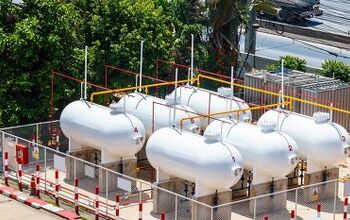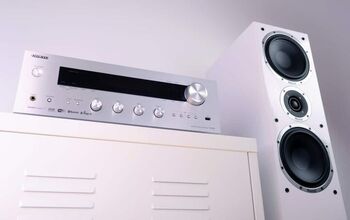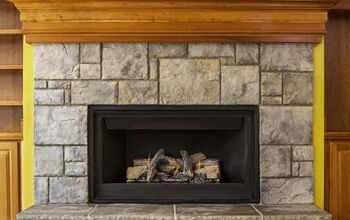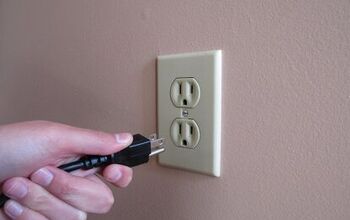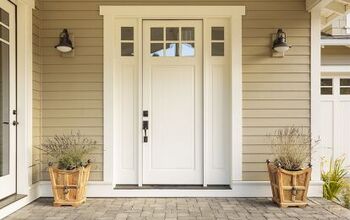What Is The Cost Of Living In Tennessee Vs. Pennsylvania?

Cost of living is a chief factor that people use to determine whether they want to live in one location versus another. When it comes to Tennessee vs. Pennsylvania, both states have much to offer potential residents. On the one hand, Tennessee is one of the fastest-growing states in the country, and those who choose to settle there are attracted to its rich beauty, charm, energetic atmosphere, and culture.
Meanwhile, on the other hand, Pennsylvania offers tons of historic landmarks, a central location to the rest of the East Coast, great education, and excellent public transportation. But, how do these two states stack up in terms of cost of living?
The cost of living index in Tennessee is just 87.6, meaning it is about 12% more affordable to live in Tennessee than the national average (100). Pennsylvania, on the other hand, has a cost of living index of 92.5, so it is more expensive than Tennessee but still less than the national average. The median price of a home in Tennessee is $231,600, which is about 26% lower than the national average of $291,700. Meanwhile, the median home price in Pennsylvania is $234,800 – under the national average and only about 1.4% more expensive than Tennessee.
Aside from median housing prices, let’s take a deeper look at how the cost of living compares in Tennessee vs. Pennsylvania.
Do You Need to Hire Movers?
Get free, zero-commitment quotes from pro contractors near you.

Housing Market in Tennessee vs. Pennsylvania
When you consider the fact that the median home price in the state of Tennessee is $231,600, it is slightly more affordable to purchase a home here than in Pennsylvania. Although both states have median home prices below the national average, with Pennsylvania’s median home price of nearly $235,000 you’d only spend about 1.5% more on a home in Pennsylvania compared to Tennessee.
Tennessee’s housing market is currently on fire, with homes selling quickly and, most of them, for over the asking price. Like most of the country, home buyers in Tennessee are outpacing the available homes, which was a result of the massive influx of people in the midst of the pandemic. Now there are simply more buyers than there are homes, causing a classic case of supply and demand imbalance.
In Nashville, median home values increased by 16% since last year, but home prices are going up all throughout Tennessee. In fact, it is predicted that home prices may continue to increase gradually into 2022. Local housing markets may have accelerated because of the strong demand among buyers, but the amount of homes on the market took a dramatic decline during 2020 and 2021.
A similar situation is occurring in Pennsylvania, as home buyers continue to face price and inventory challenges. The median sale price is up about 11% compared to last year. The combination of skyrocketing home prices, historically low interest rates, and limited homes available has caused a buying frenzy in the state. Homes are receiving multiple offers and most are selling for over asking price. While it may be a great time to sell a home in Pennsylvania or Tennessee, it is more competitive and more expensive than ideal for buyers.
Home Prices in Tennessee vs. Pennsylvania Comparison
Median home prices ultimately come down to the specific city and county that you live in in a particular state, and this is certainly the case for both Tennessee and Pennsylvania. The table below highlights some of the major cities across Tennessee and Pennsylvania, along with their accompanying median home prices:
| City | Median Home Price |
| Nashville, TN | $341,700 |
| Memphis, TN | $123,800 |
| Knoxville, TN | $257,300 |
| Philadelphia, PA | $221,400 |
| Pittsburgh, PA | $218,400 |
| Scranton, PA | $121,700 |
| City | Median Home Price |
| Nashville, TN | $341,700 |
| Memphis, TN | $123,800 |
| Knoxville, TN | $257,300 |
| Philadelphia, PA | $221,400 |
| Pittsburgh, PA | $218,400 |
| West Chester, PA | $482,400 |
The median home cost in Tennessee is pretty on par with Pennsylvania, but prices vary quite a bit based on where you live in either state. For instance, while the majority of Tennessee has median home prices below the national average, the median home price in Nashville is considerably above, at $341,700. The same is the case for Pennsylvania, as West Chester has a median home price of $482,400, but the rest of the state’s cities trend much lower.
Although both Tennessee and Pennsylvania have statewide median home prices below the national average, housing costs in Tennessee remain only a few percentages lower than in Pennsylvania.
Rent Prices in Tennessee vs. Pennsylvania
There are twenty-one states in the nation with average monthly rental prices under $1,000. With a statewide average rent of just $869 a month, Tennessee is considered an affordable place to live for renters. Generally speaking, states that have the lowest rental prices also have some of the lowest overall costs of living, and this is the case for Tennessee.
With that said, the table below displays a more comprehensive look at the average monthly rent in some of the various cities across Tennessee:
| City | Average Rent |
| Nashville, TN | $1,581 |
| Memphis, TN | $967 |
| Knoxville, TN | $1,274 |
| Murfreesboro, TN | $1,317 |
| Franklin, TN | $1,744 |
| Chattanooga, TN | $1,182 |
Like Tennessee, average rental prices in Pennsylvania are also below $1,000 per month. With a statewide average monthly rent of $938, Pennsylvania is twenty-fifth on the list of the states with the cheapest rents. However, rental rates vary depending on the city you live in.
That said, examine the following table for the average monthly rent in some of Pennsylvania’s major cities:
| City | Average Rent |
| Philadelphia, PA | $1,736 |
| Pittsburgh, PA | $1,331 |
| Bethlehem, PA | $1,538 |
| Allentown, PA | $1,352 |
| Camden, PA | $1,097 |
| West Chester, PA | $1,692 |
Taxes in Tennessee vs. Pennsylvania
There are some notable differences between the taxes in Tennessee versus the taxes in Pennsylvania, outlined in detail below.
State Income Tax
Tennessee does not have a state income tax on salaries, wages, bonuses, or any other form of work income. This means that, regardless of your income level, you do not have to pay any sort of income tax on your wages. In the past, the state did levy a “Hall Income Tax,” but as of 2021, there will no longer be a state income tax in Tennessee. You do, however, still have to file and pay your federal income taxes.
Pennsylvania, on the other hand, has a flat income tax system. This means that every taxpayer in the state, no matter their income level, pays the same percentage of their taxable income. The rate is 3.07%. Though, many cities in Pennsylvania also levy a Local Earned Income Tax which is usually 1%, but may be nearly 3.9%. In smaller municipalities, this tax is capped at 2% by state law but in larger cities you’ll face the highest possible rate.
Sales Tax
Tennessee’s statewide base sales tax is 7%, which is tied for the second-highest rate in the country. However, cities and counties throughout the state collect their own sales taxes that range from 1.50% to as much as 2.75%. This means that the highest sales tax that you could end up paying in Tennessee is 9.75%, which happens to be the total sales tax rate in Nashville.
Pennsylvania’s statewide base sales tax rate is 6%. This rate is charged in the majority of the state, with two exceptions. In Allegheny County, there is an additional 1% sales tax and in Philadelphia, there is a local surcharge that totals 2%. This brings the total sales tax rate in Philadelphia to 8%.
Property Tax
One of the major financial advantages of living in Tennessee is the fact that homeowners pay some of the lowest property taxes in the country. The median statewide property tax paid is $1,220, which translates to an average effective property tax rate of 0.64%. Although this is the 15th-lowest effective rate in the nation, rates vary depending on where you live in Tennessee. For example, Shelby County has the highest rate in the state at 1.42% and Pickett County has the lowest at under 0.37%.
Dissimilarly, Pennsylvania’s average effective property tax rate is 1.50%, which is considerably higher than the national average rate of 1.07%. Though, this rate also varies depending on where you live in the state. For example, Philadelphia county’s average rate is 0.99% and Allegheny County’s rate is 2.01%. These rates are determined based on the median annual tax payment as a percentage of median home assessed value.
Taxes in Tennessee vs. Pennsylvania Comparison
| State | Income Tax | Sales Tax | Property Tax |
| Tennessee | None (1% flat rate tax on interest and dividends earned during 2020 tax year) | 7.00% – 9.75% | 0.64% (average effective rate) |
| Pennsylvania | 3.07% flat rate (state income tax) 0% – 3.8712% (local income tax) | 6% – 8% | 1.50% (average effective rate) |
Transportation Costs in Tennessee vs. Pennsylvania
Whether you choose to live in Tennessee or Pennsylvania, it’s important that you also consider transportation costs. Expenses such as new vehicle purchase prices, gas prices, monthly transit passes, bus fares, and other public transportation costs play a role in determining a state’s overall cost of living.
With Tennessee’s transportation cost index of 90.2 and Pennsylvania’s transportation cost index of 104, these expenses tend to be more affordable in Tennessee overall.
| Cost Factor | Tennessee | Pennsylvania |
| Gallon of gas | $2.23 | $2.61 |
| Monthly public transit pass | $40.67 | $74.78 |
| Taxi trip in downtown (approx. five miles) | $16.82 | $19.78 |
| New Volkswagen Golf | $21,004 | $22,269 |
Entertainment & Miscellaneous Costs in Tennessee vs. Pennsylvania
| Cost Factor | Average Price in Tennessee | Average Price in Pennsylvania |
| Monthly local gym membership | $27.21 | $33.18 |
| Movie ticket | $10.59 | $11.92 |
| Pack of cigarettes | $6.10 | $7.84 |
| Domestic beer (1 pint) | $3.84 | $4.17 |
| Cappuccino (mid-range area) | $4.28 | $4.10 |
| Pair of running shoes | $77.54 | $76.25 |
| Fast food combo meal | $7.41 | $7.59 |
Do You Need to Hire Movers?
Get free, zero-commitment quotes from pro contractors near you.

Tennessee vs. Pennsylvania: Which is More Expensive?
When you consider cost of living index, both Tennessee and Pennsylvania are below the national average. However, when you compare these two states together, Pennsylvania is about 5.6% more expensive than Tennessee.
Related Guide

Jessica considers herself a home improvement and design enthusiast. She grew up surrounded by constant home improvement projects and owes most of what she knows to helping her dad renovate her childhood home. Being a Los Angeles resident, Jessica spends a lot of her time looking for her next DIY project and sharing her love for home design.
More by Jessica Stone
















